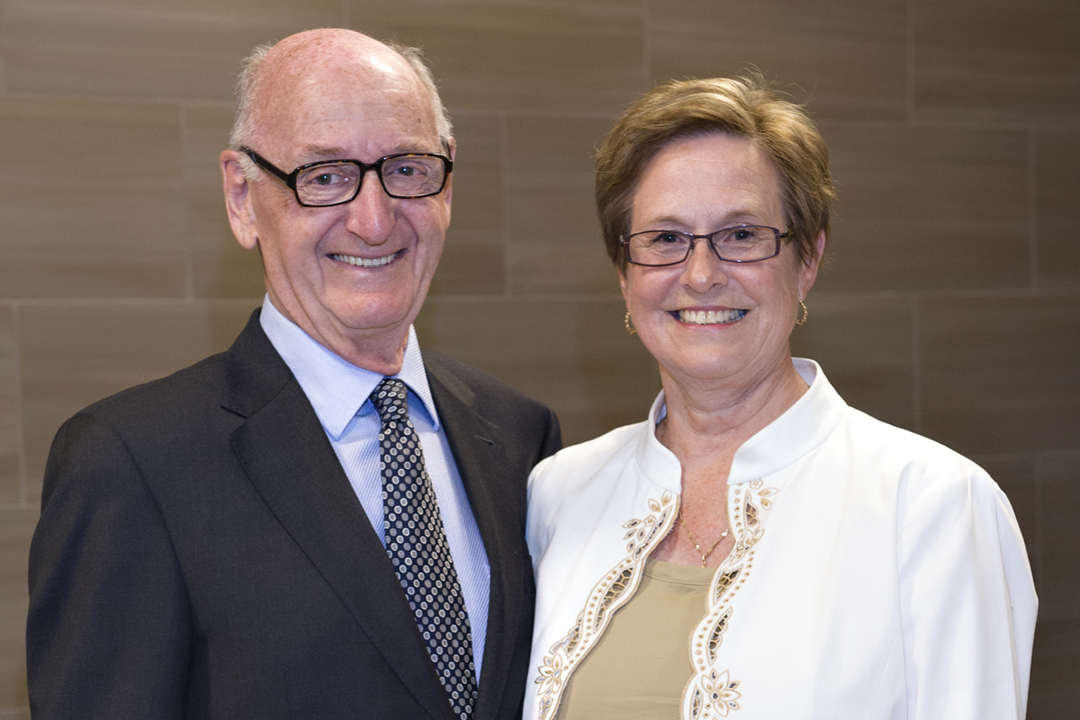
Donor Spotlight: Drs. Lawrence and Penny Clein
The Clein's generous gift to the College of Medicine is both a testament to their kindness and an inspiring story.
By Lawrence Clein, MBBS, BSC, FRCS(C)The Dr. Lawrence and Penny Clein Scholarship in Palliative Care is given to a fourth-year medical student who demonstrates the potential and the interest to pursue a career in related to palliative care. Inspired by his experiences working in palliative care, Dr. Clein founded this scholarship with his wife to support students who share his commitment to this area of medicine.
Palliative care today has become a very sophisticated specialty that focuses on patients with an incurable disease and those approaching the end of life. Care is provided by teams that manage pain and other physical symptoms along with spiritual, social and psychological concerns. This approach relieves the burden for family members and maintains dignity and a sense of control for the patient.
Of course, care of dying people was always a major concern of communities. However, in the past, it was the responsibility of the spiritual leaders who came to the homes of the dying to pray for their souls, so they might get to heaven. Doctors were kept away.
Following World War II, there was an advance in medicine with an emphasis on curing patients. A death was considered a failure of treatment and the dying patient would be segregated in the large 25 to 30 bed ward behind drawn curtains, and never visited by us on ward rounds.
I started medical school in 1953 and remember how we always bypassed these segregated patients and were never taught anything about care for the dying.
All that changed in the late 1970s and early 1980s, following the lead of Cicely Saunders, who was first a nurse, then a social worker and finally a physician. The hospice movement was founded in the United Kingdom (UK) and then shortly after in the United States (US) by another great physician, Dr. Elizabeth Kubler-Ross (MD). Soon, hospices were all over the UK, US and Europe, and now all over the world.
I started my career as a palliative care physician in 1998 under the mentorship of the late, wonderful Dr. Srini Chari, in Saskatoon. Srini had been mentored by Dr. Balfour Mount (MD) of Montreal who had visited Cicely Saunders and he created the first palliative care unit in a hospital. Mount also introduced the term ‘palliative care’ rather than hospice care, which remains today.
Palliative care units in hospitals are employed for the acute management of pain, dyspnea and delirium. They are hospices for the terminal care of patients, needing end-of-life care management that cannot be given at home.
After training, I became American board certified in palliative care and worked in Regina for 15 years, eventually retiring in 2018. By this time, I had started a scholarship in palliative care for students to encourage learning in this subject. I am happy with the progress so far.
I have left a bequest in my estate for the continuation of this scholarship. After 50 years of connection with the University of Saskatchewan, it seems like a good thing to do. I would like to take the opportunity to encourage those of you getting older to consider doing the same for an area of activity of your interest.
